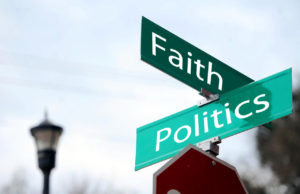
In the most unorthodox political season since I started paying attention to politics 50 years ago, the polarized national environment has thoroughly invaded local congregations. Pastors, priests and rabbis report pressure from some congregants to “Speak to the issues!” and from others to “Stay away from politics!” Many congregational leaders worry about the nasty tone of the national discourse and feel compelled to call for civility. What should a congregational leader say or do amid such omnipresent political tensions?






